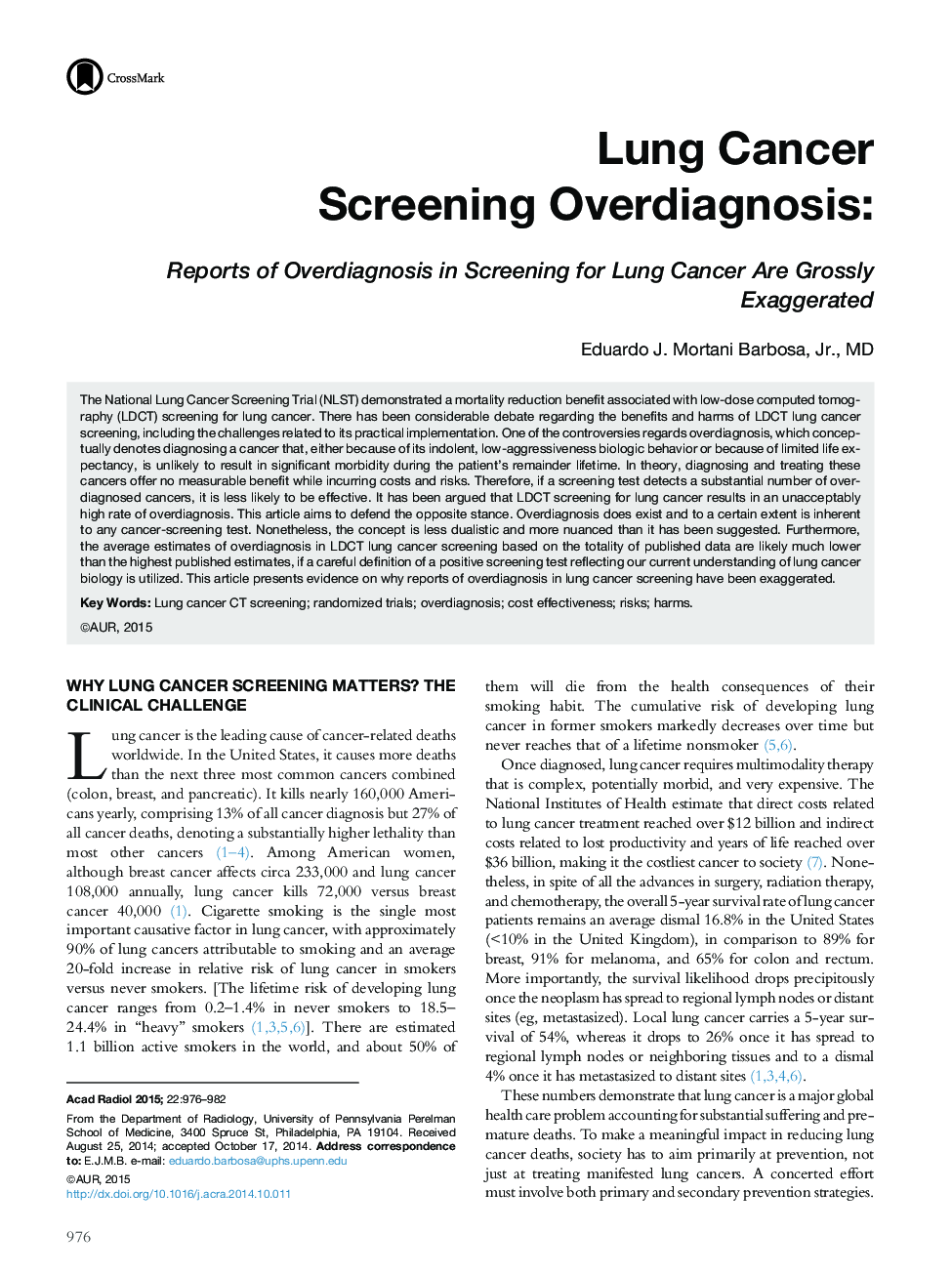| Article ID | Journal | Published Year | Pages | File Type |
|---|---|---|---|---|
| 4217971 | Academic Radiology | 2015 | 7 Pages |
Abstract
The National Lung Cancer Screening Trial (NLST) demonstrated a mortality reduction benefit associated with low-dose computed tomography (LDCT) screening for lung cancer. There has been considerable debate regarding the benefits and harms of LDCT lung cancer screening, including the challenges related to its practical implementation. One of the controversies regards overdiagnosis, which conceptually denotes diagnosing a cancer that, either because of its indolent, low-aggressiveness biologic behavior or because of limited life expectancy, is unlikely to result in significant morbidity during the patient's remainder lifetime. In theory, diagnosing and treating these cancers offer no measurable benefit while incurring costs and risks. Therefore, if a screening test detects a substantial number of overdiagnosed cancers, it is less likely to be effective. It has been argued that LDCT screening for lung cancer results in an unacceptably high rate of overdiagnosis. This article aims to defend the opposite stance. Overdiagnosis does exist and to a certain extent is inherent to any cancer-screening test. Nonetheless, the concept is less dualistic and more nuanced than it has been suggested. Furthermore, the average estimates of overdiagnosis in LDCT lung cancer screening based on the totality of published data are likely much lower than the highest published estimates, if a careful definition of a positive screening test reflecting our current understanding of lung cancer biology is utilized. This article presents evidence on why reports of overdiagnosis in lung cancer screening have been exaggerated.
Related Topics
Health Sciences
Medicine and Dentistry
Radiology and Imaging
Authors
Eduardo J. MD,
